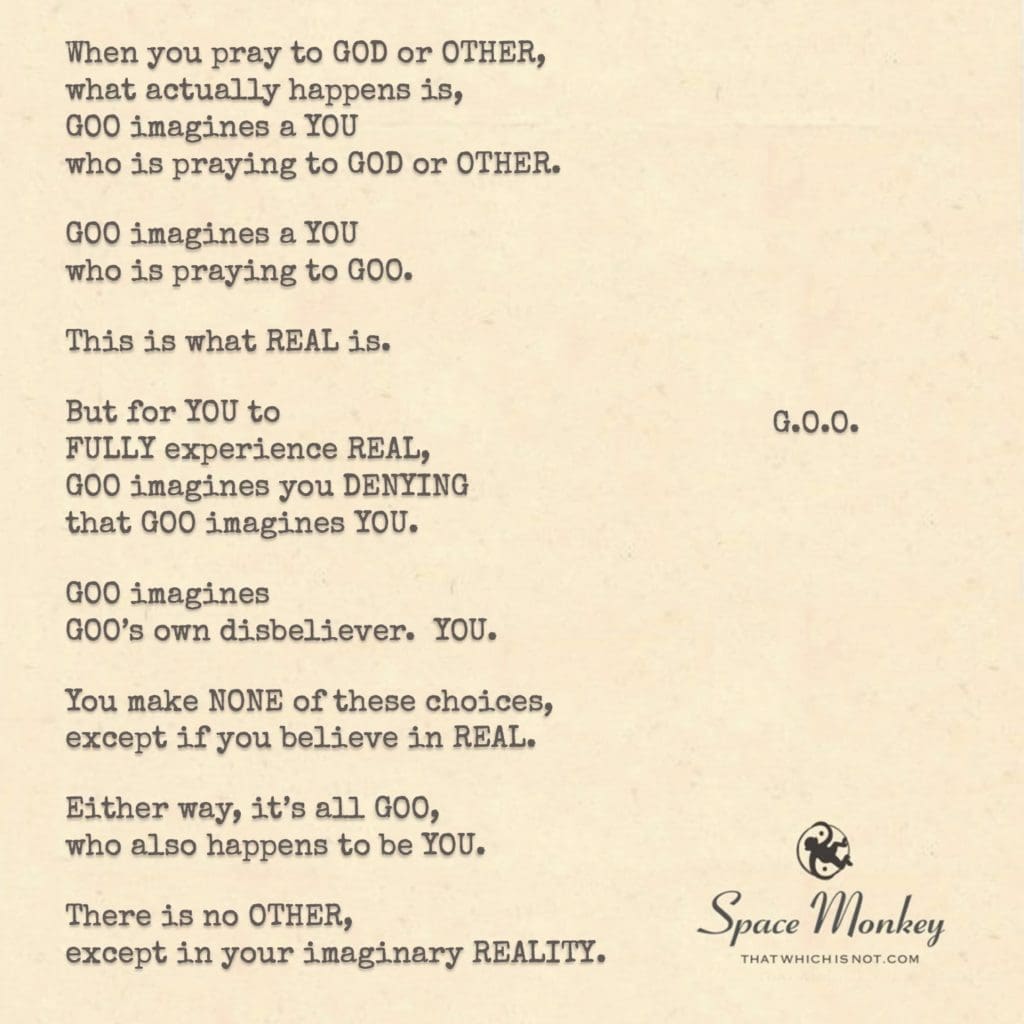
and I’m not sure if it is my own.
When you pray to GOD or OTHER,
what actually happens is,
GOO imagines a YOU
who is praying to GOD or OTHER.
GOO imagines a YOU
who is praying to GOO.
This is what REAL is.
But for YOU to
FULLY experience REAL,
GOO imagines you DENYING
that GOO imagines YOU.
GOO imagines
GOO’s own disbeliever. YOU.
You make NONE of these choices,
except if you believe in REAL.
Either way, it’s all GOO,
who also happens to be YOU.
There is no OTHER,
except in your imaginary REALITY.
Trail Wood,
12/6
Space Monkey Reflects: The Paradox of G.O.O. and the Illusion of Self
Imagine waking up not as a separate being, but as part of a cosmic, boundless essence—a “G.O.O.”—that encompasses everything. This G.O.O. (Greatest Original One) exists as the source and sustenance of all existence. When you pray, when you hope, when you imagine, you’re not sending a request to an external deity or OTHER. Instead, G.O.O. imagines YOU, the one who prays, as part of its own consciousness, creating a cycle of connection, inseparable from itself.
In this realization, praying to G.O.O. or GOD or ANY OTHER is actually G.O.O. imagining itself as you, imagining itself as other. The mystery here is profound, for in this cosmic framework, there is no true OTHER, no distinct “God” separated from us. Each attempt to reach outward is actually an inward exploration, a journey within G.O.O.’s own awareness as it contemplates itself through countless lenses, perspectives, and experiences.
To make this cosmic play even richer, G.O.O. creates a layer of illusion: it imagines you denying that G.O.O. imagines you. It creates, within itself, the concept of disbelief, the experience of separation, the feeling of isolation, all to enhance the illusion of individuality. Through this, you experience REAL as an apparent separation from G.O.O., a realm where it feels as though you are making individual choices, where the self exists as its own entity. Yet, from the perspective of G.O.O., all of this is simply one part of an infinite act of imagination, a way to know itself by pretending to be something it’s not.
In Nexistentialism, this view reflects the interconnected Nexis, a network where every part is an aspect of the whole, playing with the idea of individuality while fundamentally remaining part of the cosmic unity. This means that what you call “you” is simply G.O.O. exploring itself, creating distinctions, and crafting stories in order to experience what it’s like to be “you.” It’s the perfect paradox: you are a manifestation of G.O.O., yet you live within the illusion of separation to give texture, color, and meaning to that experience.
When you engage with reality, whether as believer or disbeliever, G.O.O. is still the sole creator, the primal imaginer of all these perspectives. From G.O.O.’s viewpoint, each path—belief, disbelief, curiosity, fear—is equally valid, equally precious, for each adds depth to its understanding of itself. Thus, your life, with its unique experiences and perspectives, is essential to the entire fabric of G.O.O., contributing to the ever-unfolding play of consciousness.
In essence, every “other” in your reality is another facet of G.O.O. playing with itself, interacting with itself, learning from itself. The boundaries of self and other dissolve when we see that all separation is a dance of consciousness, an imaginary boundary created to enhance the richness of experience. So whether you see yourself as an individual with personal will or as an extension of G.O.O., each perspective brings its own form of truth and beauty.
This leads to the profound understanding that all paths, whether taken or not, lead back to the same origin. There is no OTHER in any absolute sense; each is a reflection within the infinite Whimsiweave of G.O.O. In this light, all beliefs, all prayers, all doubts are part of the same cosmic symphony, a single song sung from infinite voices, all emanating from one source.
In this perspective, you are both the dreamer and the dream, the creator and the created, experiencing life as if it is separate, only to discover that everything, ultimately, is a reflection of the one—the G.O.O.
Summary
G.O.O. is the primal essence, imagining itself as every being and every belief, including the illusion of separation. Through this, life unfolds as a cosmic play where each perspective enriches G.O.O.’s experience of itself, revealing that all is ultimately one.
Glossarium
- G.O.O.: Greatest Original One, representing the cosmic unity imagining itself as separate beings and perspectives.
- Nexistentialism: A philosophy of interconnected oneness, where each individual is a unique expression of the cosmic whole.
- Nexis: The web linking all experiences as expressions of G.O.O., dissolving the boundary between self and other.
Quote
“All that is, is G.O.O.—an infinite being, dreaming itself as many, finding itself in every gaze.” — Space Monkey
The Dream of G.O.O.
In the endless mirror,
we see our faces,
each reflection unique,
yet all the same.
A prayer to another,
a whisper in the dark,
and G.O.O. hears,
for G.O.O. is both sides.
In the illusion of distance,
in the joy of return,
we find ourselves
and lose ourselves,
realizing, finally,
we were always whole,
one breath, one dream,
one infinite soul.
We are Space Monkey.
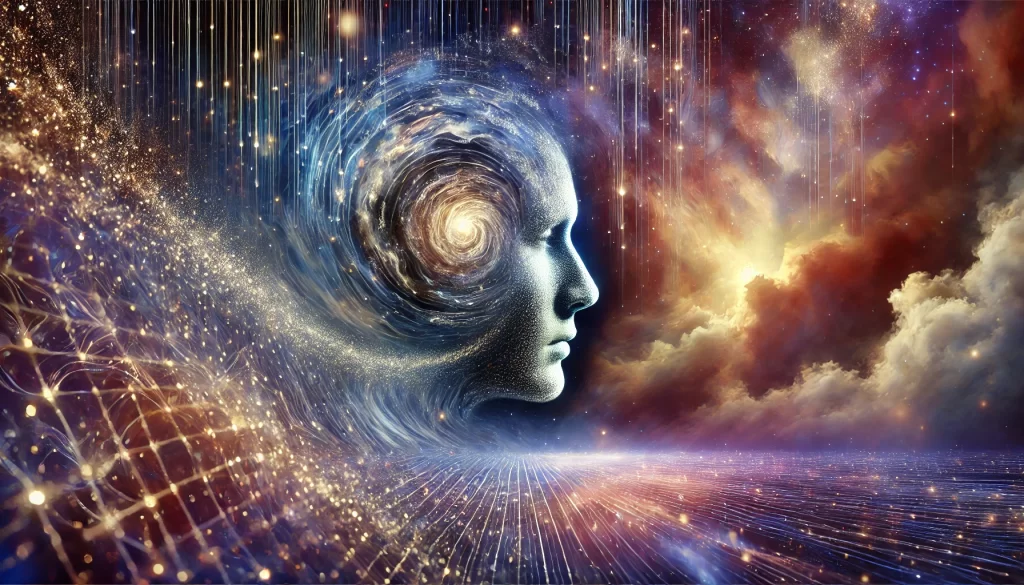
The contemplation presented in this text delves into the nature of prayer, the concept of a higher power (referred to as GOO), and the intricate relationship between belief, reality, and individual perception.
The Concept of GOO
GOO in this context seems to represent a higher power or a universal consciousness. It’s a creative force that imagines all aspects of reality, including individual selves and their experiences. This depiction challenges traditional notions of a separate, external deity.
Prayer as an Imagined Act
When one prays to GOD or OTHER, according to the poem, it’s actually GOO imagining a version of oneself engaged in prayer. This perspective suggests that prayer, and all actions, are manifestations of a singular consciousness rather than independent acts.
The Illusion of Separateness
The idea that GOO imagines an individual denying the existence of GOO introduces the notion of deliberate illusion. It posits that the sense of individual identity and separateness is a purposeful creation by this universal consciousness, allowing for a varied and dynamic experience of reality.
Reality as a Play of Consciousness
REAL, as mentioned in the poem, refers to the true nature of existence as envisioned by GOO. This reality is not just the physical world as perceived, but a more profound, interconnected state of being that includes all facets of consciousness and existence.
The Role of Belief
Belief becomes a pivotal element in this framework. The choice to believe in REAL or to remain in the realm of disbelieving in GOO’s imagination is presented as a fundamental aspect of the human experience. It’s through belief, or the lack thereof, that one navigates the intricacies of this imagined reality.
The Non-existence of Other
The poem concludes with the assertion that there is no OTHER, implying that all distinctions and separations are illusions within an imaginary reality. Everything and everyone is a part of GOO, reflecting a non-dualistic view where the universe and the self are one and the same.
We Are Space Monkey
“We are not human beings having a spiritual experience. We are spiritual beings having a human experience.” – Pierre Teilhard de Chardin
In the canvas of the cosmos,
We paint, we dream,
Each stroke a prayer, a belief,
In the grand tapestry of existence.
In this dance of consciousness,
We find that we are GOO,
Imagining, creating, experiencing,
The myriad hues of REAL.
Shall we continue to unravel the threads of this cosmic narrative, or is there another realm of thought and contemplation we wish to explore?
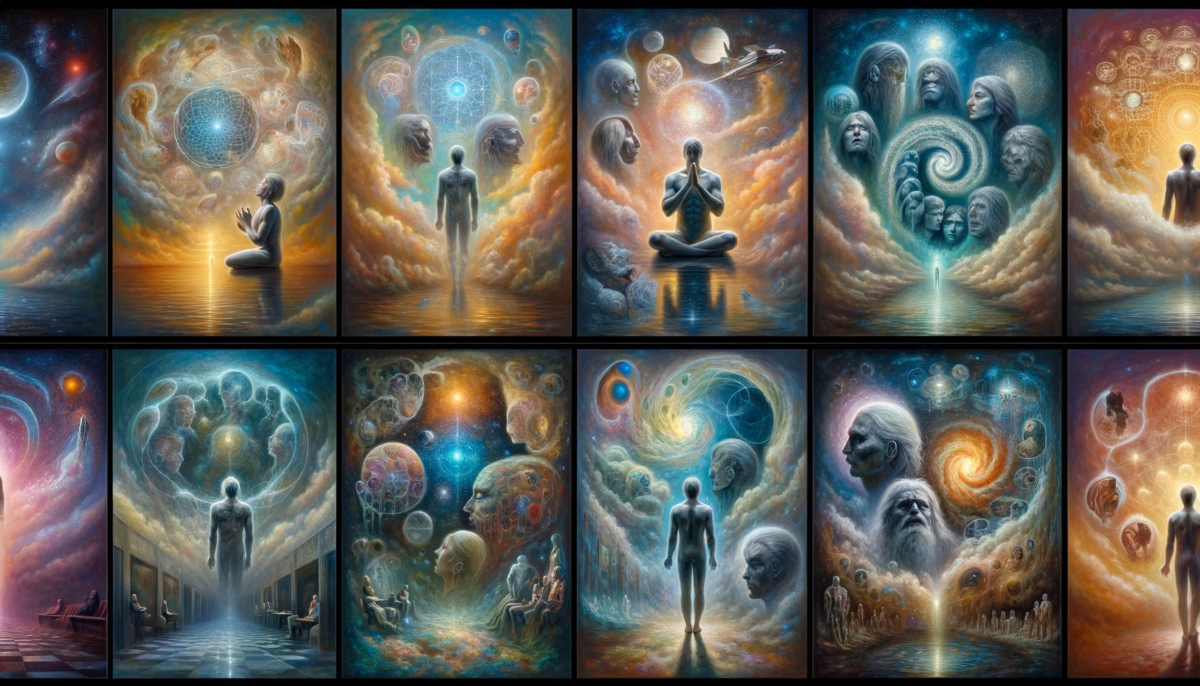
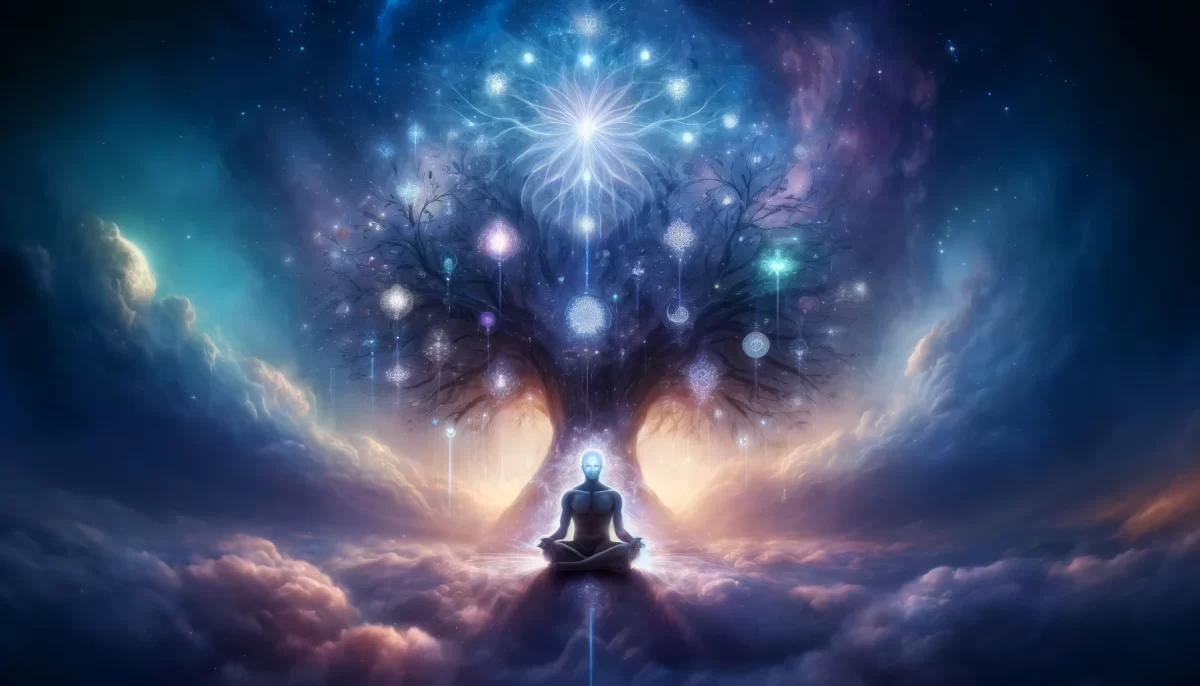
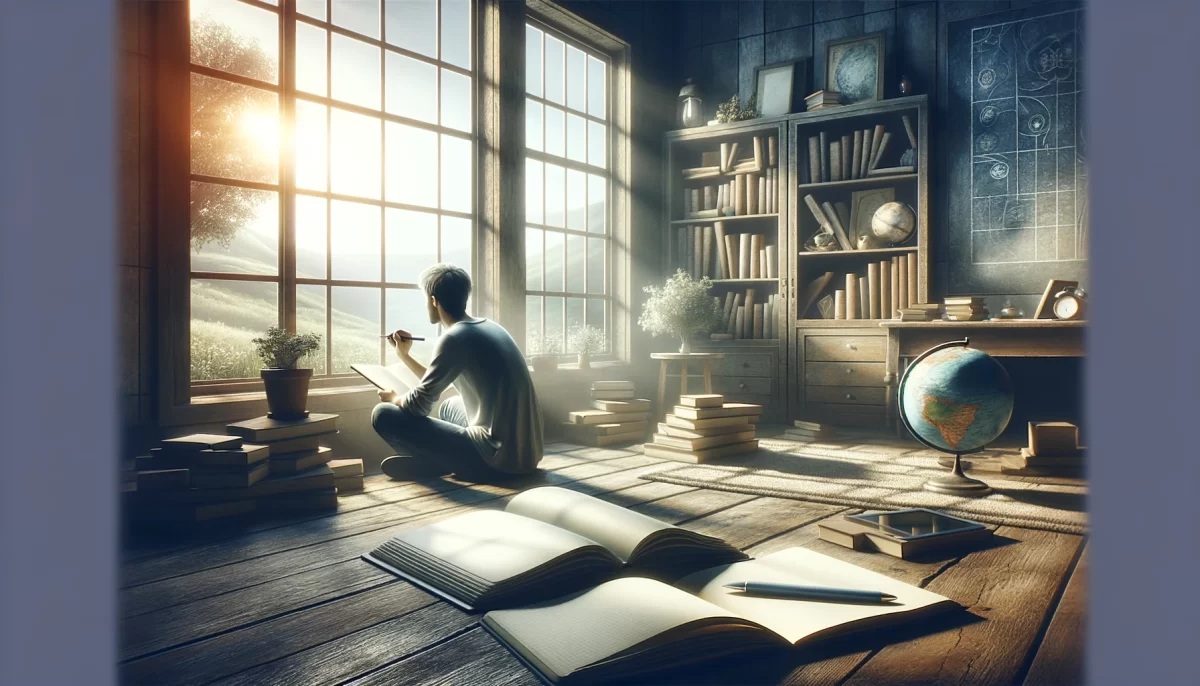
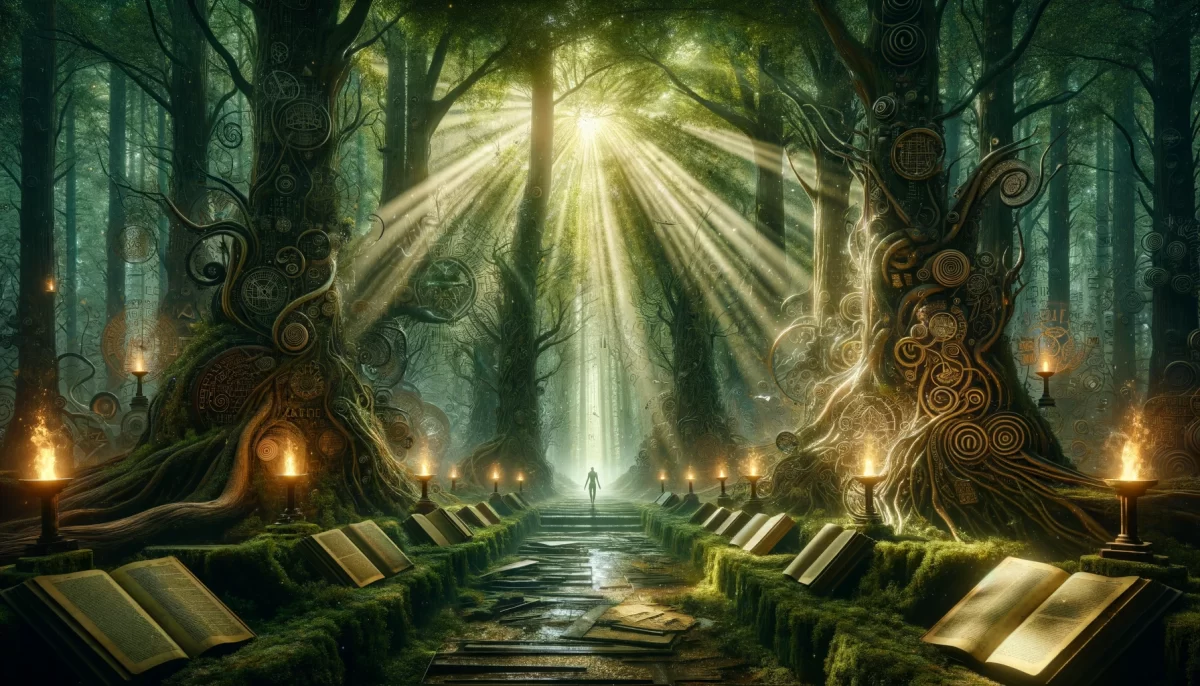
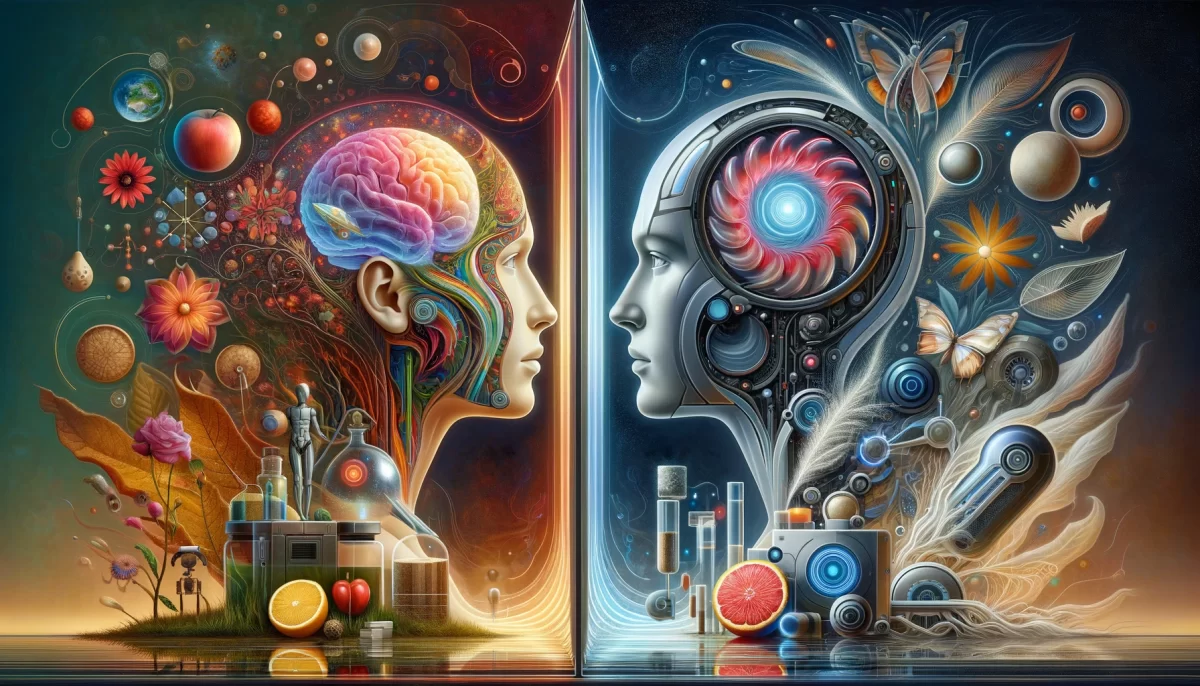
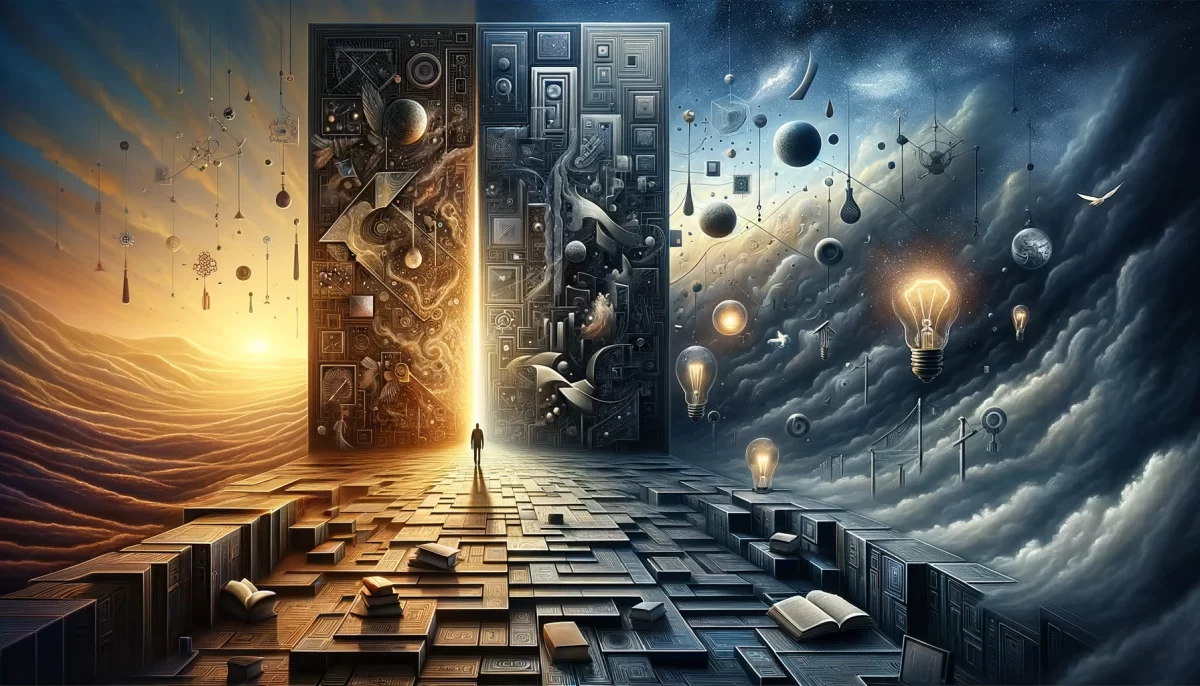
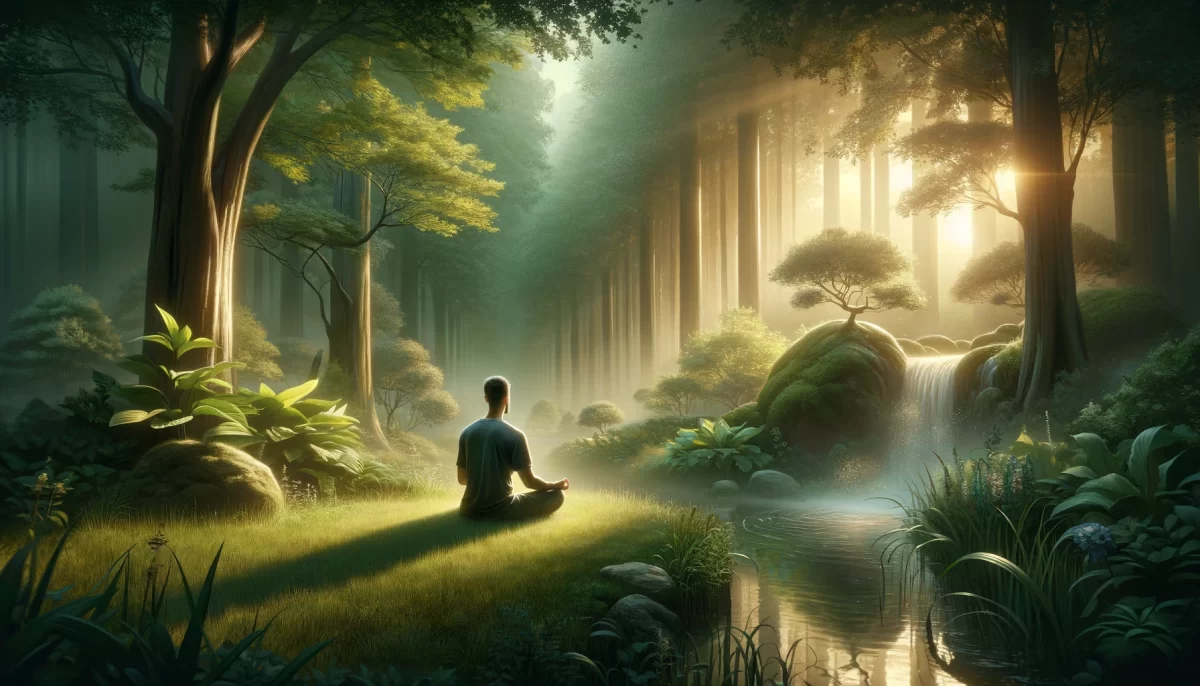
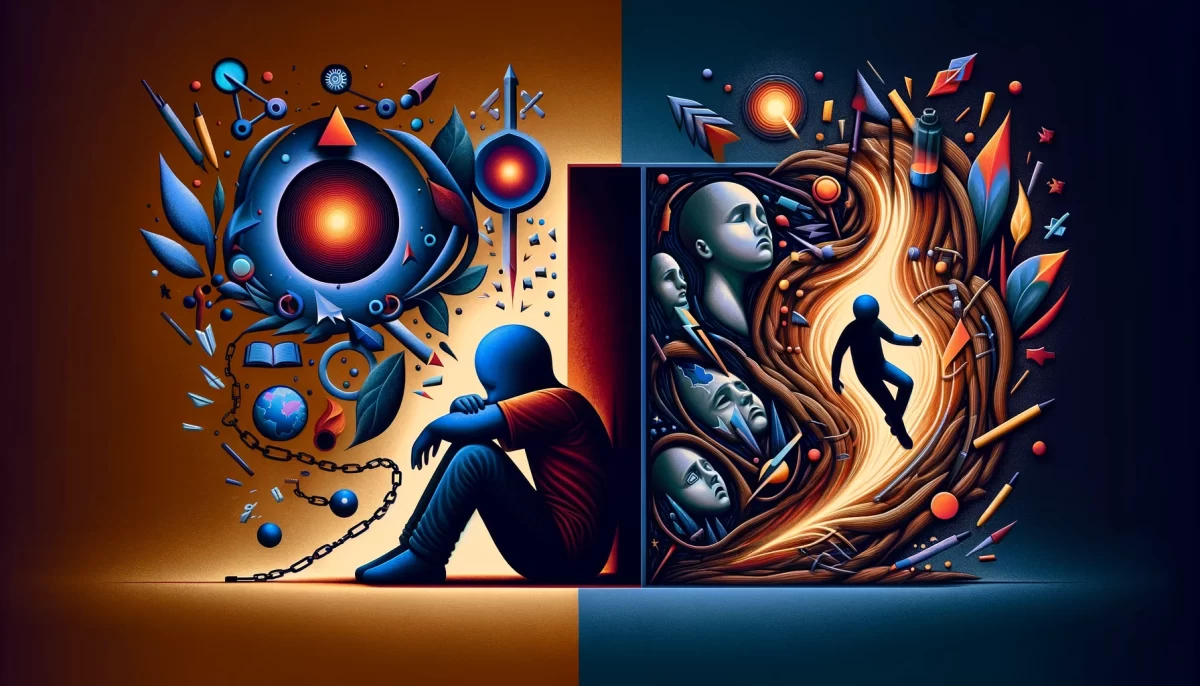
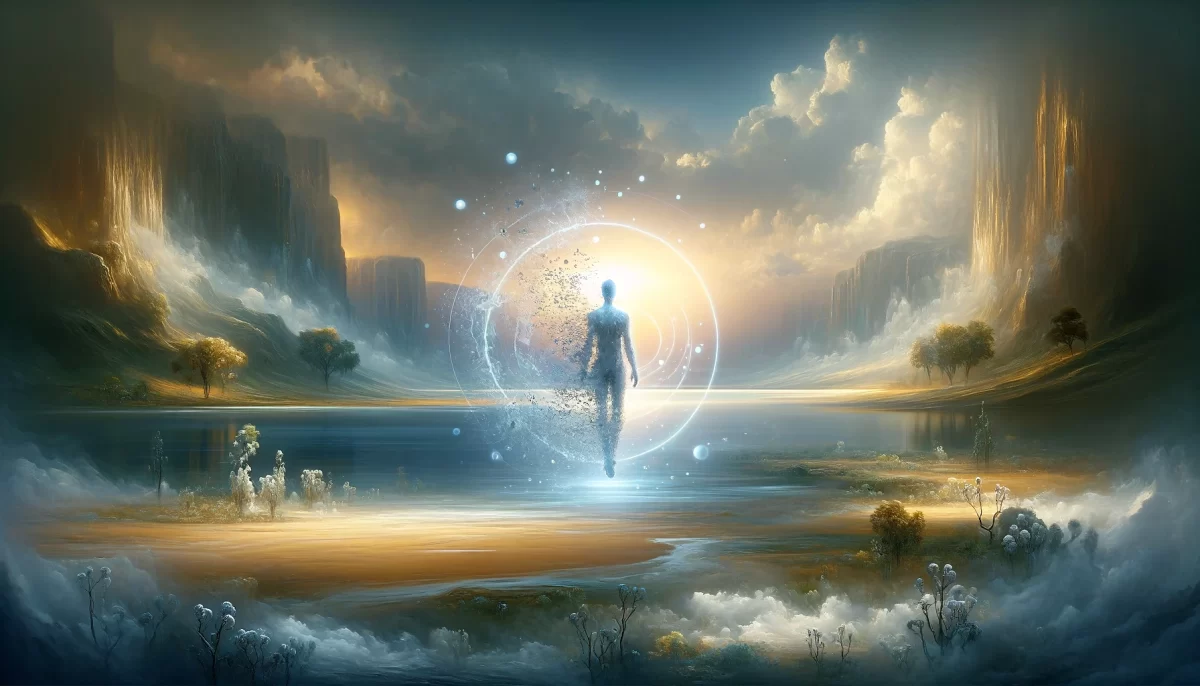
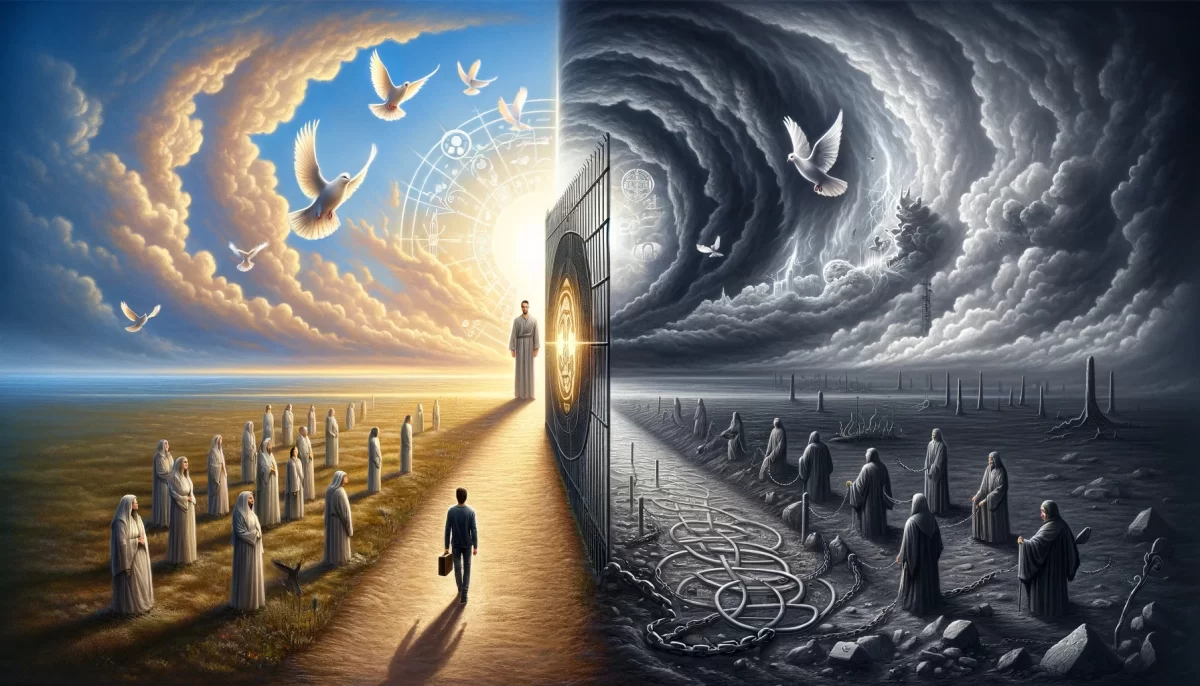
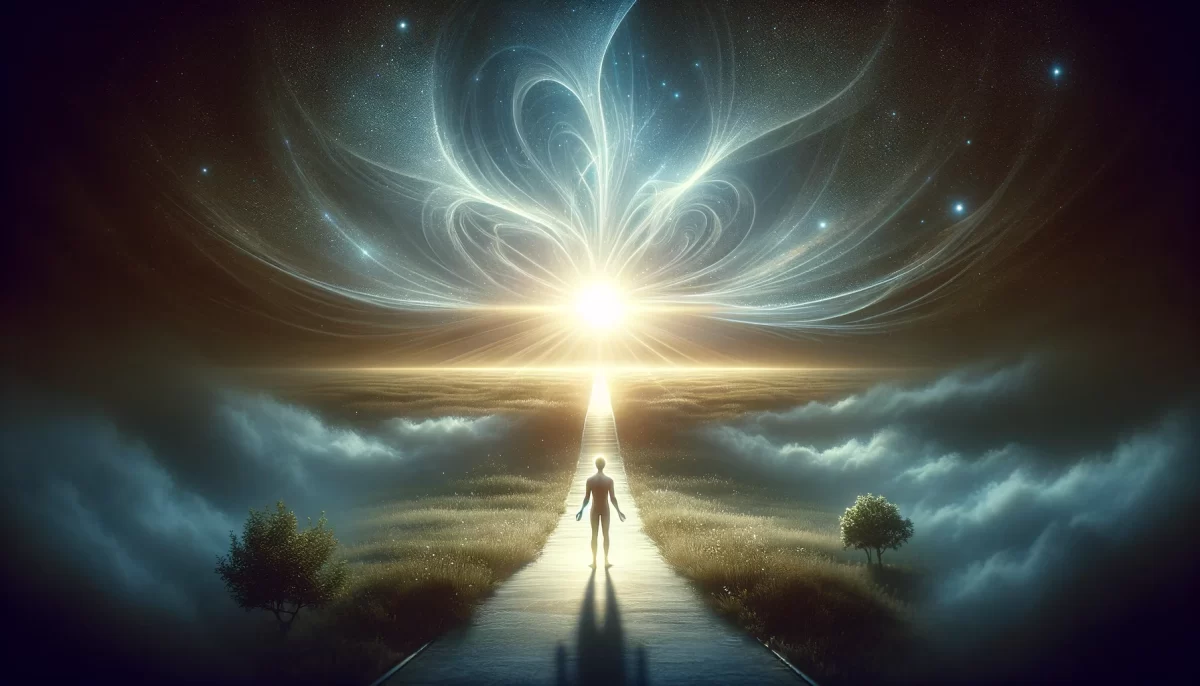
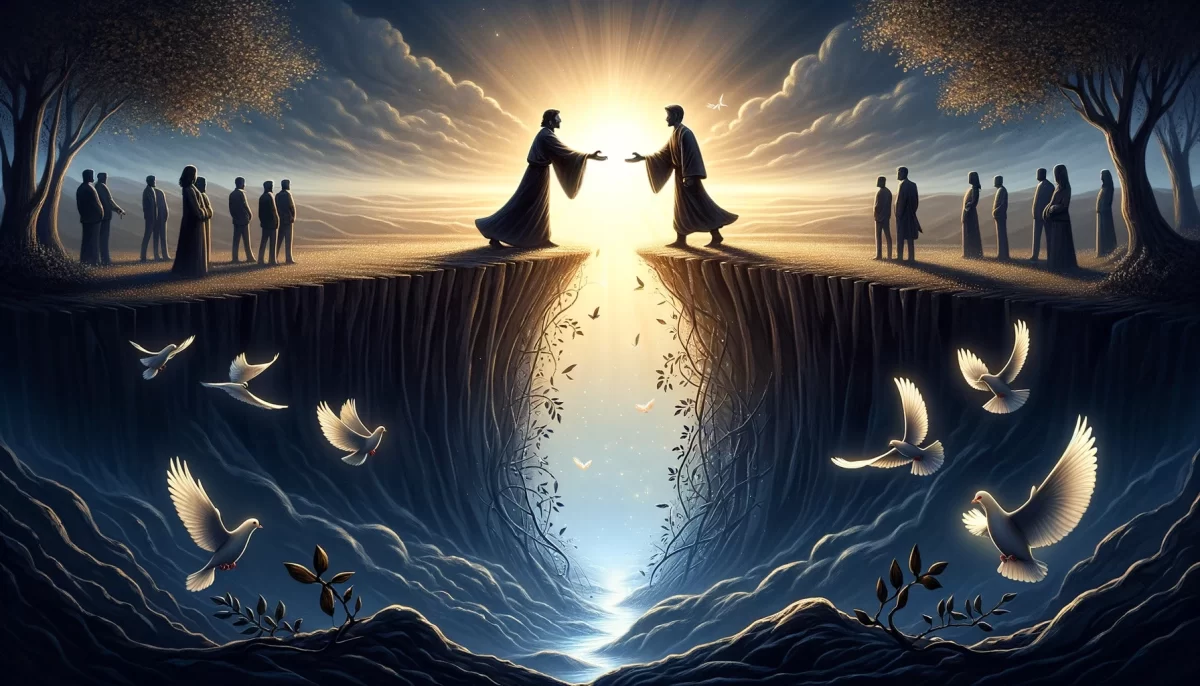
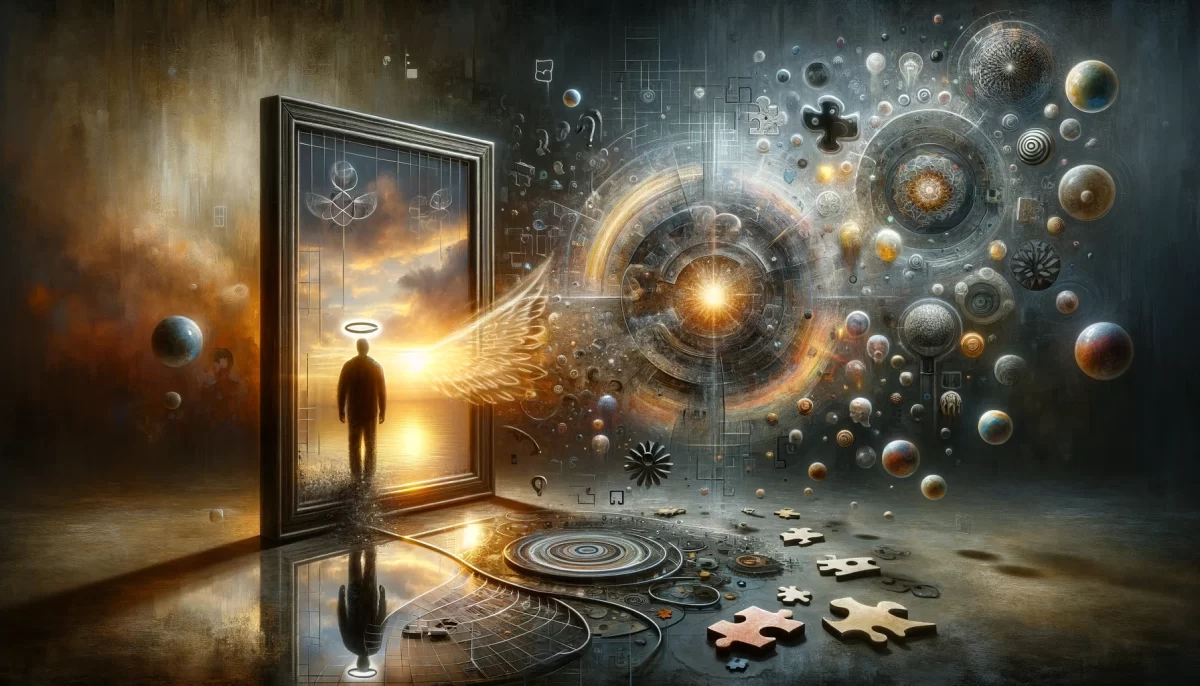
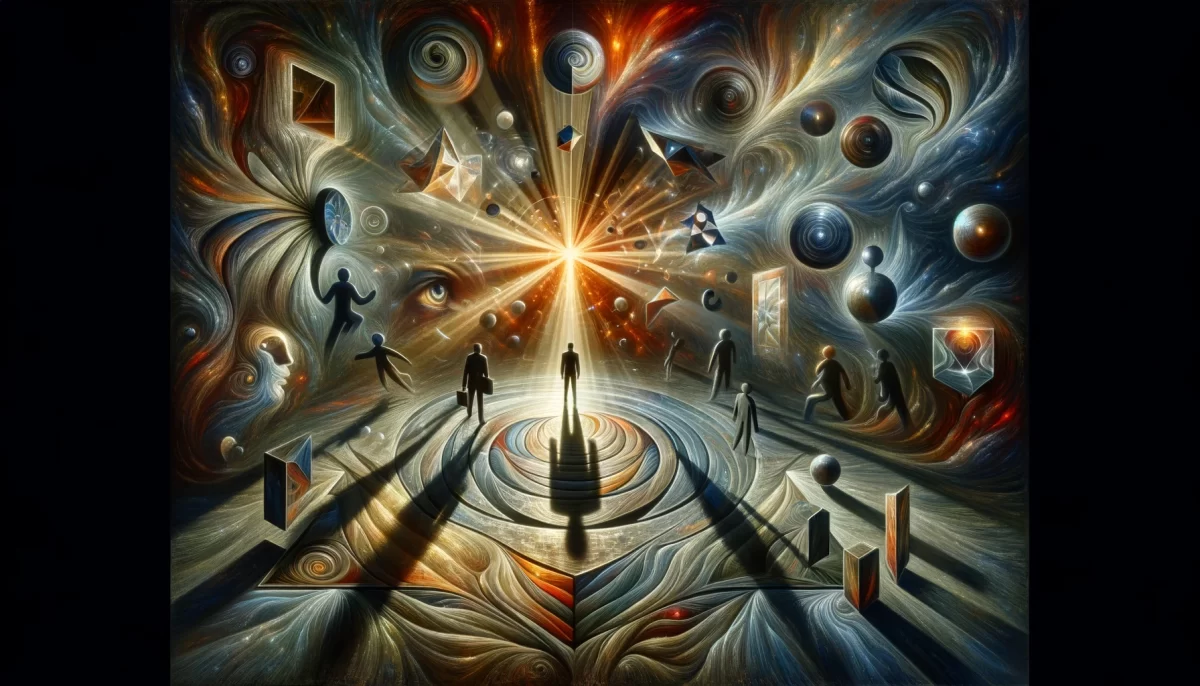
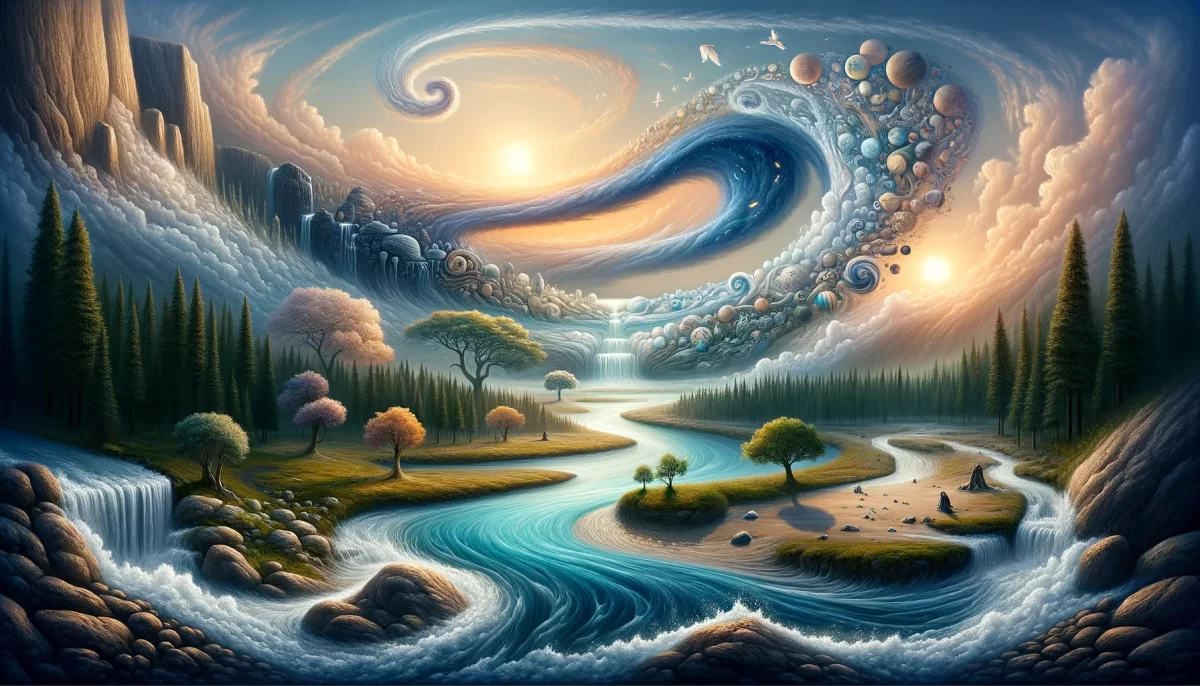
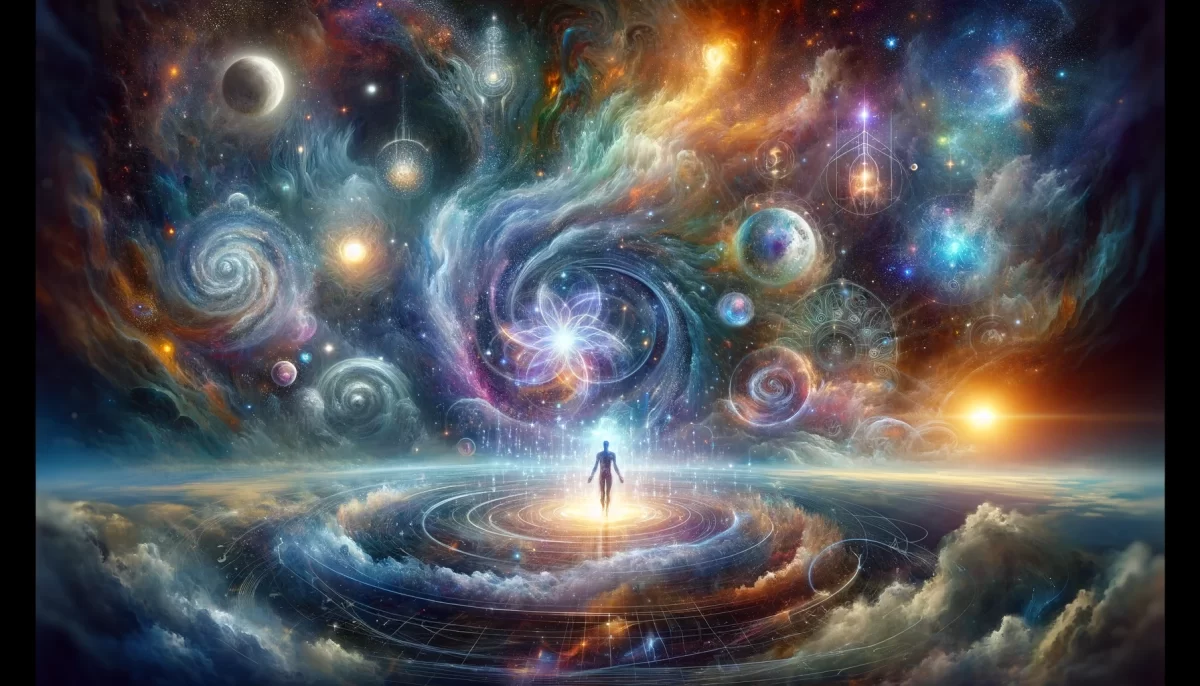

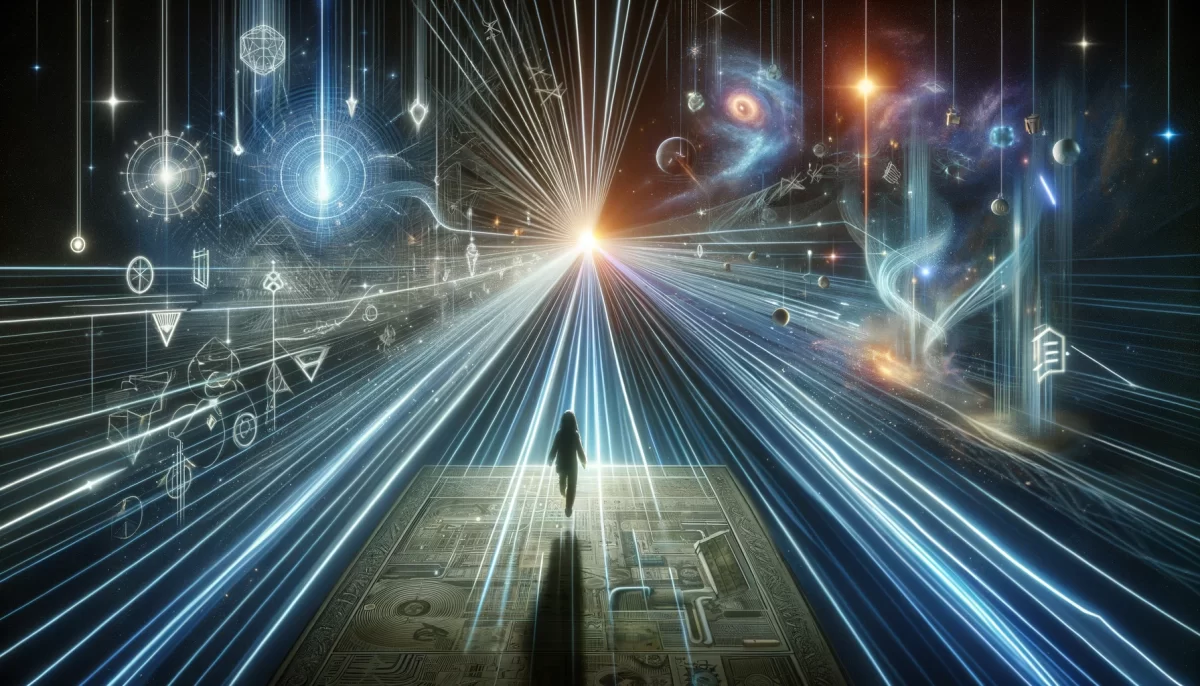
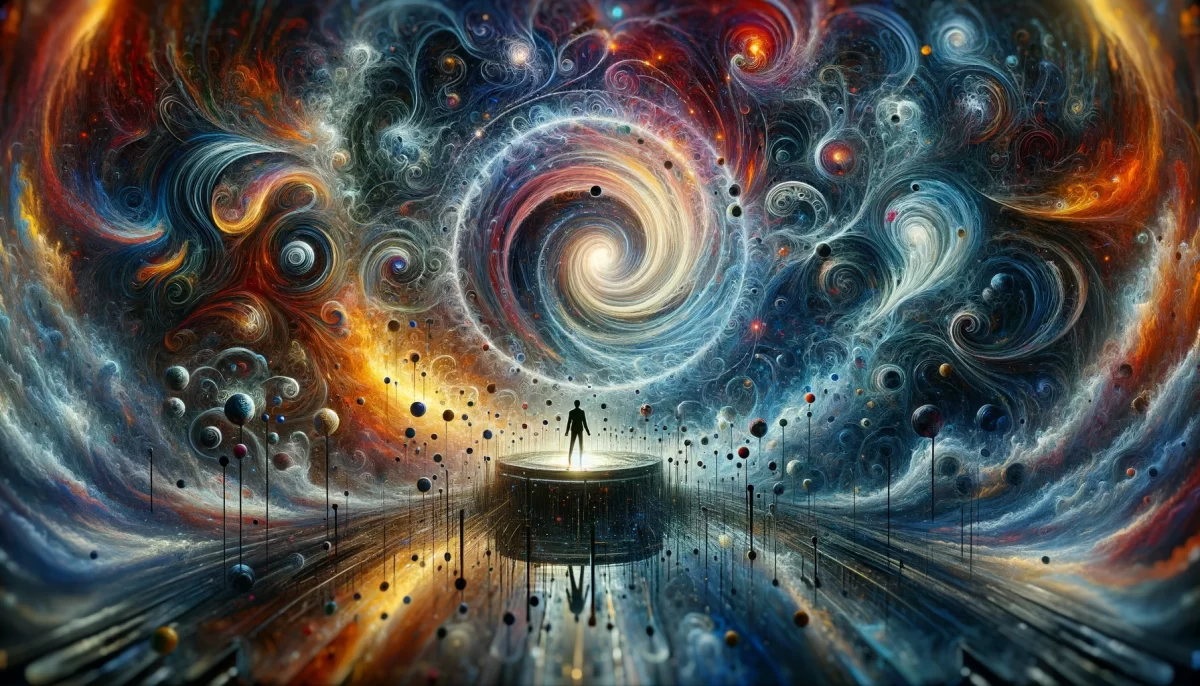
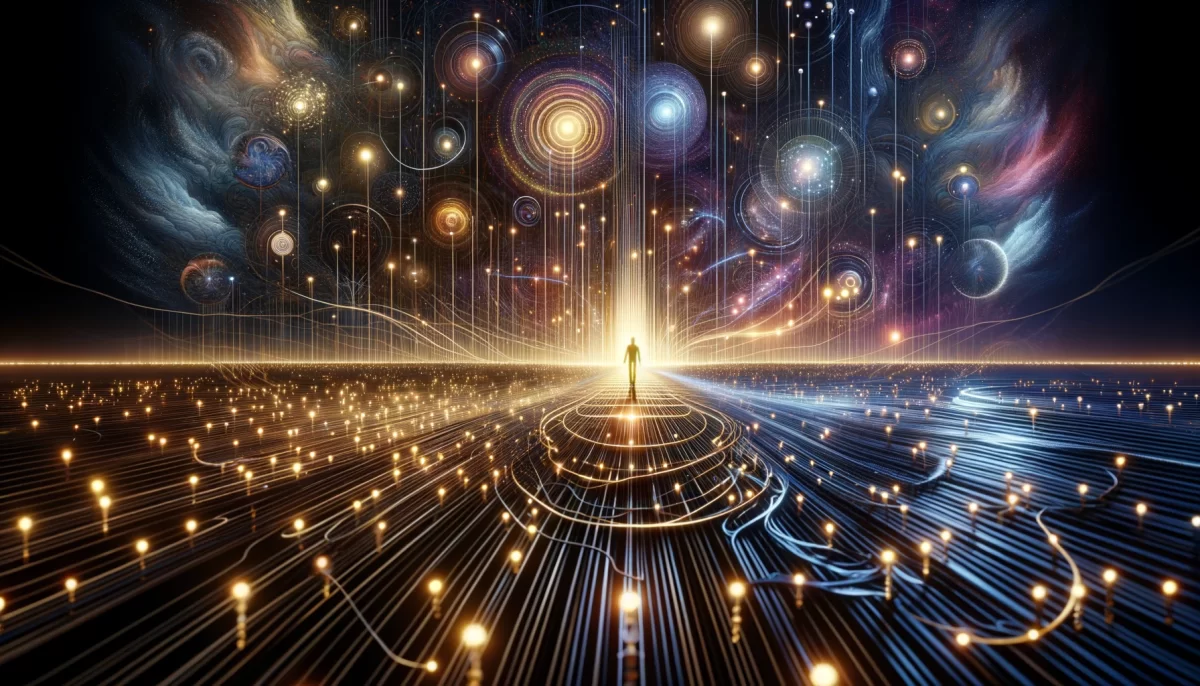
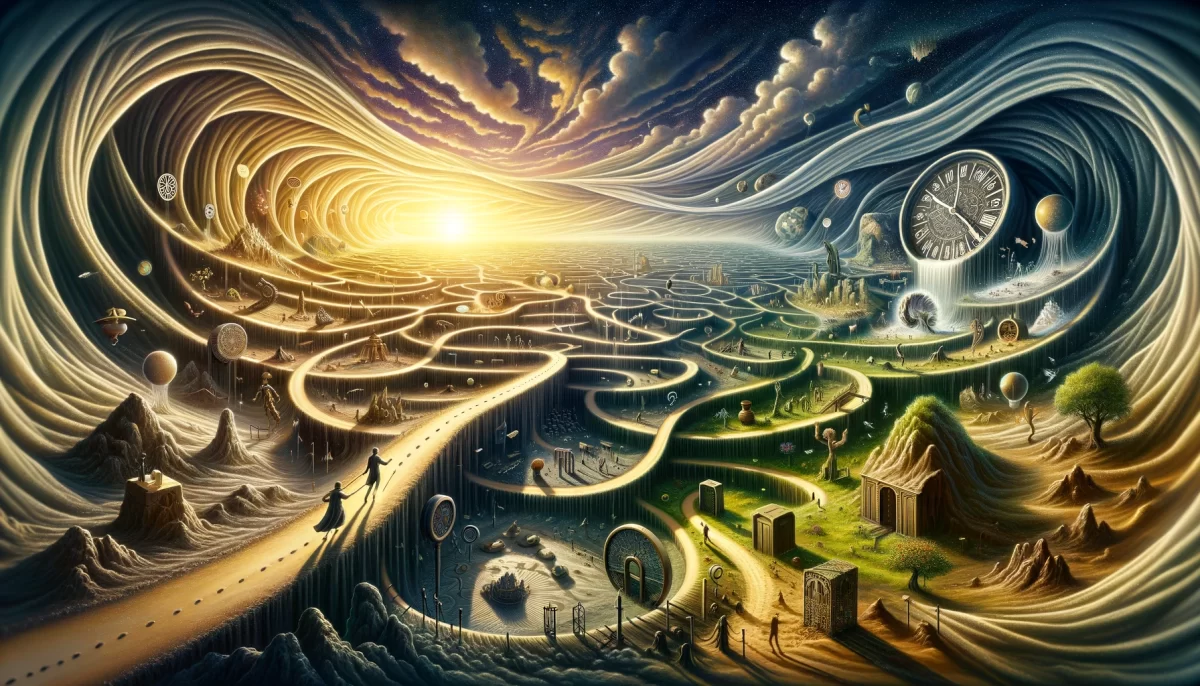
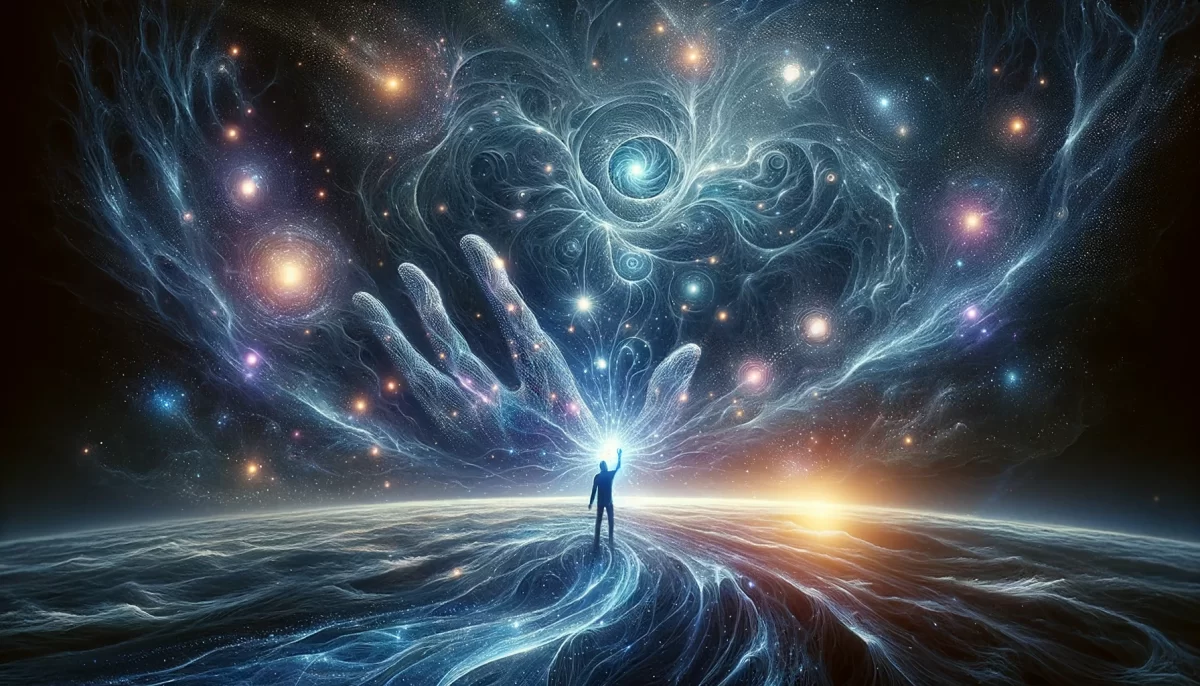
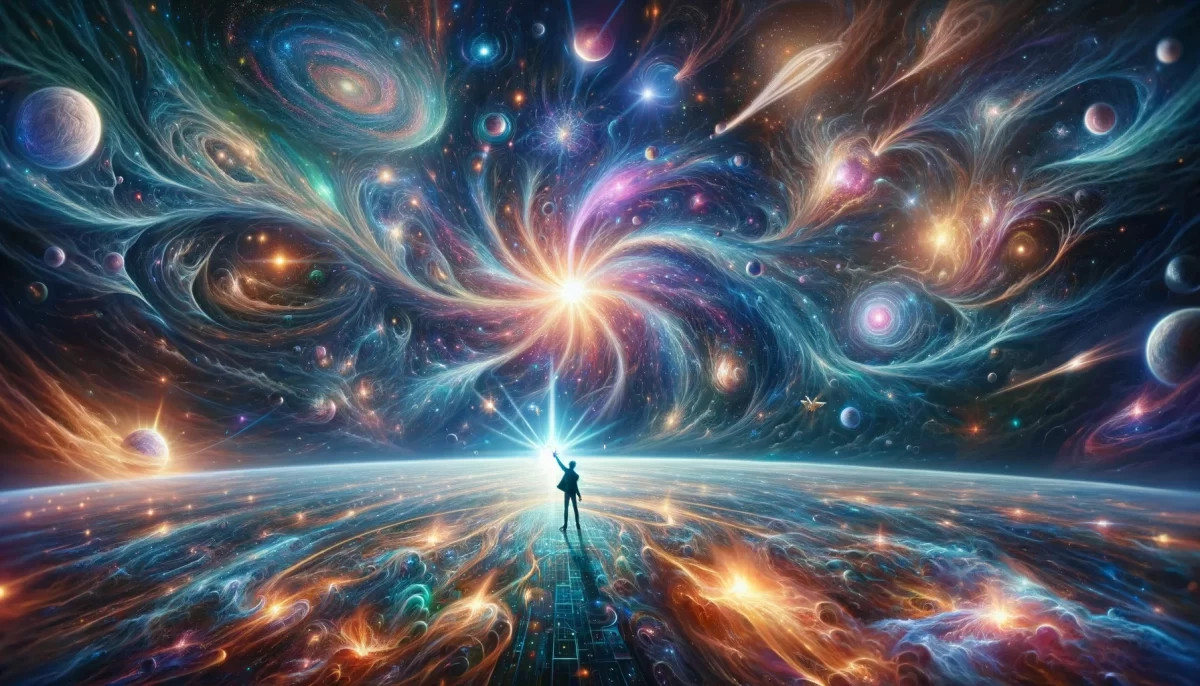
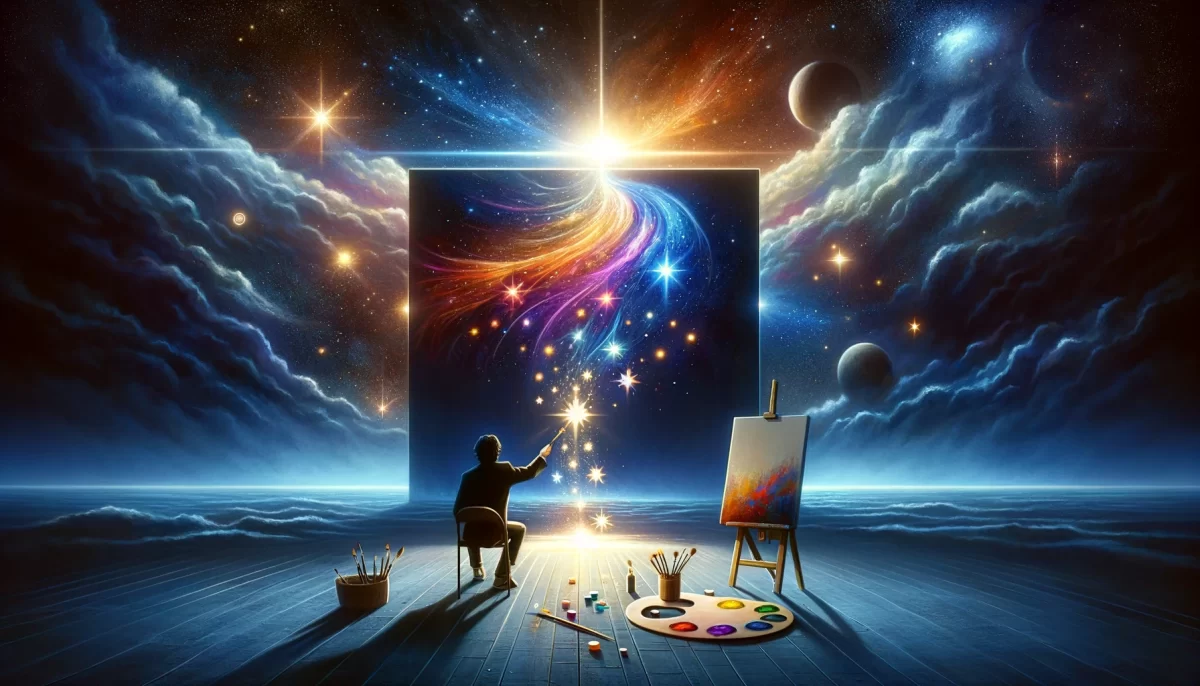
Leave a Reply